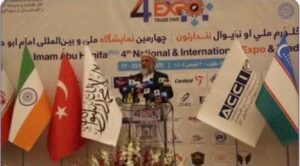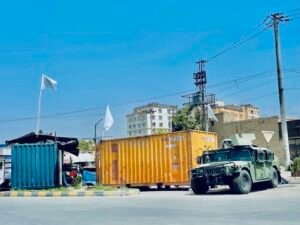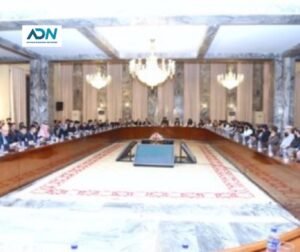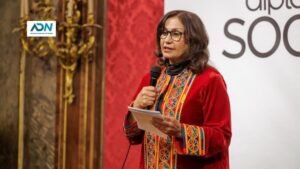The Place of the People in the Taliban’s System and Ideology

Photo by @AADIL for ADN
By: T.T.S
Edited by: A.N.S
The Taliban claim to be a regime based on the will of the people and rooted in the fabric of Afghan society. They assert that they have a broad popular base and that their system of governance is the desired model for the people of Afghanistan, who have long awaited this regime. However, if you were to ask a Taliban leader on what basis they make such claims—be it a survey, standard, or referendum—you would undoubtedly receive no clear or straightforward answer. As has been reiterated in various media, they will often say that the support of the Afghan people in their struggle against the former government signifies absolute support for them and their ideology. They argue that if the Afghan people were not with them, how could they have stood against the United States and the republican system and emerged victorious?
It is evident that the claims of the ruling regime are baseless and entirely false. A closer examination reveals that Taliban ideology has never held any significant place in the hearts of the Afghan people. In fact, a vast majority from various sectors and ethnic groups have opposed this ideological movement since its inception, and now that the Taliban are in power, there is profound discontent with their style of governance.
While the roots and causes of these claims will be explored in a separate analysis, the fundamental question remains: what is the role of the people and their opinions in Taliban thought and governance? The definition and significance of the people may differ for those aligned with Taliban ideology, but ultimately, these varying opinions are not the deciding factors. The final word is held by the leader of this group and a select few close associates. In the traditional beliefs of the Taliban, which are derived from their outdated and medieval interpretation of religious texts, the people are categorized into two groups:
- Scholars (Ulama) or the People of Understanding (Ahl al-Bab)
- Non-scholars (Awam al-Nas) or the General Public
In this categorization, scholars are the ultimate authority over the people. Due to their religious knowledge and the spiritual status bestowed upon them by God, they possess the authority and insight to intervene in the affairs of the people, make decisions on their behalf, and select leaders and guardians for them.
It is obligatory for the people to obey the decisions of the scholars and to show deference to them. No one is permitted to voice objections, raise questions, or challenge their authority. Moreover, these scholars are not accountable to the general public for their actions and decisions; in fact, no one has the right to question their opinions or decisions. They are solely answerable to God Almighty on the Day of Judgment. From whom have these powers been granted to the clerics, and where have such authorities been bestowed upon them?
This is a substantial discussion that will be addressed in another piece.
If we delve deeper into the nature of scholars and knowledge within Taliban ideology, we find that, in their view, a scholar is merely a cleric or a religious figure—nothing more.
This group divides all human knowledge into two categories: the first is termed “science,” which includes religious studies and its branches, while the second is referred to as “virtue,” encompassing all contemporary knowledge and modern sciences.
Based on this reasoning, the clerics, who are fossilized remnants of past eras, regard modern education as a mere excess or “virtue,” leading them to restrict educational opportunities for girls.
They believe that acquiring modern knowledge is unnecessary for girls, whose primary responsibilities are household management, obedience to their husbands, and childbearing. Thus, if you hold a super-specialization in medicine or have received a Nobel Prize in quantum physics, from their perspective, you are not considered a scholar. Consequently, you lack the authority to govern your own destiny; you must allow a cleric who has studied in religious schools to make decisions regarding your future and that of your children. You are compelled to obey without question.
On the other hand, the second group, the common people, have minimal responsibilities. Their primary duty is to obey the scholars and attend their sermons.
A good common person, in the eyes of Taliban thought, is one who consistently follows the orders of the scholars and remains compliant and submissive to their words. Clichéd slogans like “Scholars are the inheritors of the prophets” have been invented for this very purpose and stem from this ideological wellspring.
Within Taliban thought, wherever there is discussion of ideas, thoughts, and collective decisions, it is the religious scholars who hold the right. Conversely, whenever the discussion shifts to obedience, financial contributions, and sacrifice, it is the duty of the people.
Biography of the Author:
The author, who introduces herself under the pseudonym T.T. Sh., was born in Farah province in western Afghanistan, where she spent her childhood and adolescence. She completed her education in midwifery and, after the Taliban came to power, like many other women in the country, she was forced into seclusion. Although the author does not consider herself a rival, she has taken up the pen out of a sense of duty and a desire for the future of the girls in her country, aiming to be the voice of the oppressed women and girls of her homeland.








